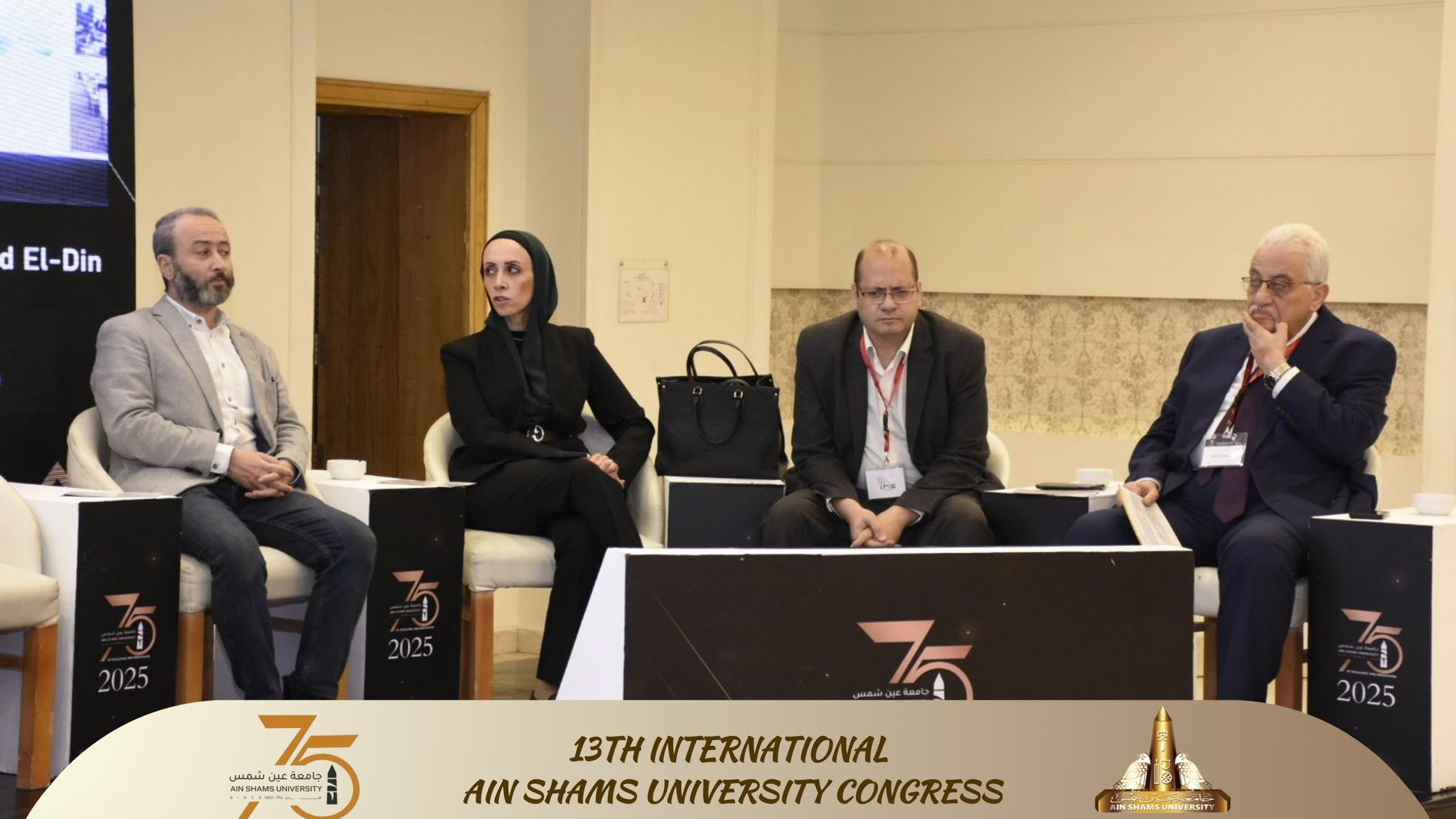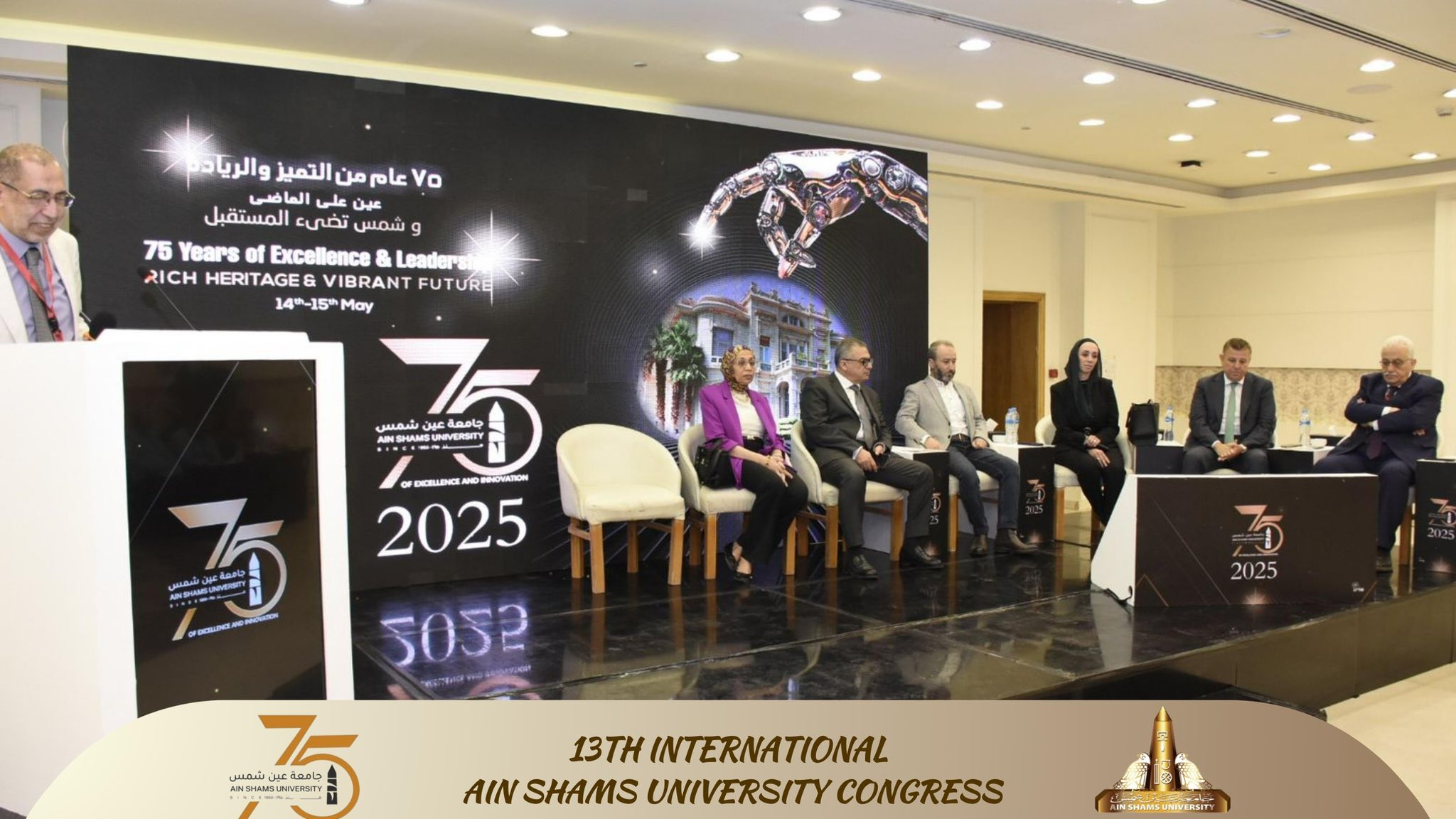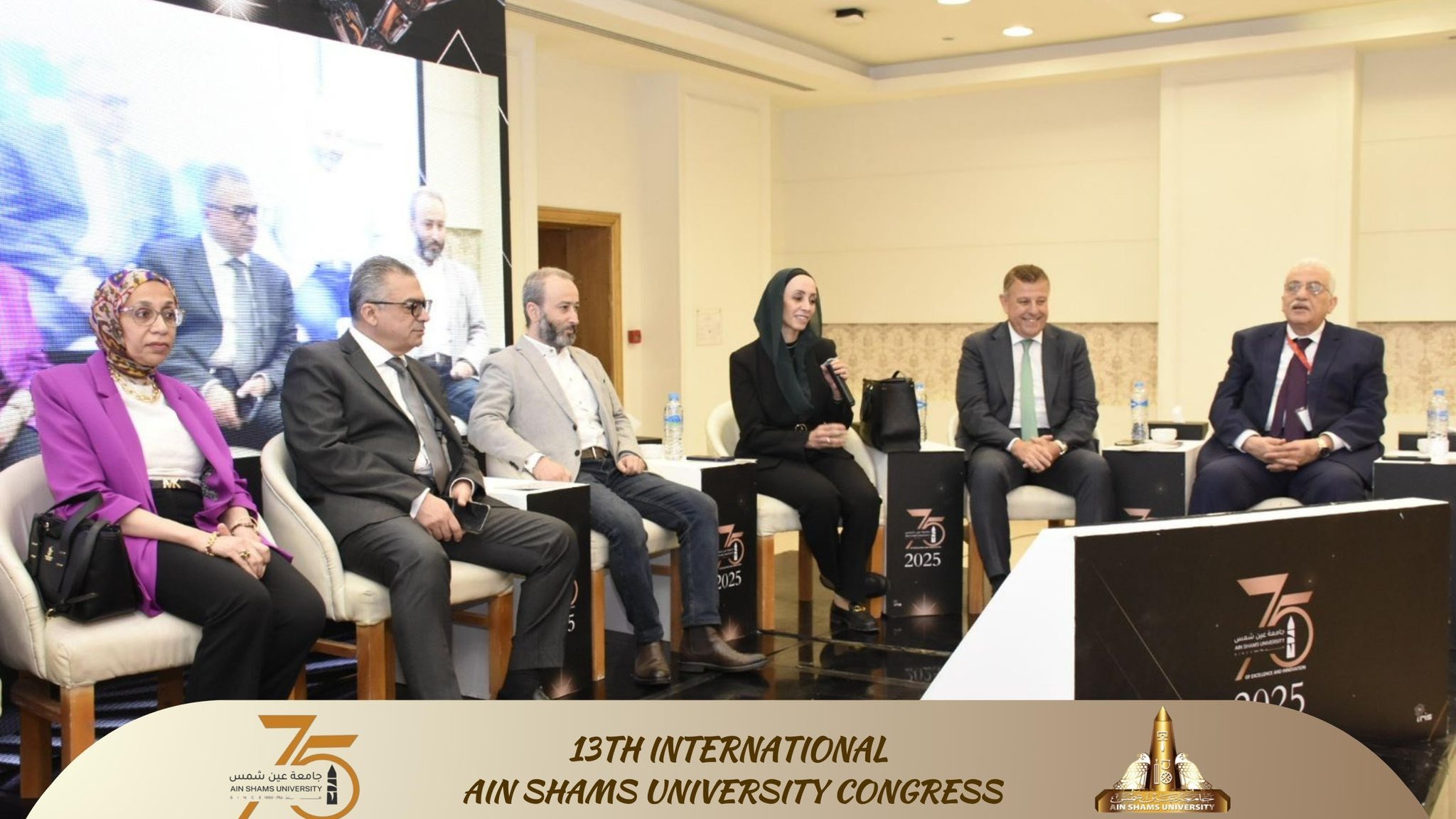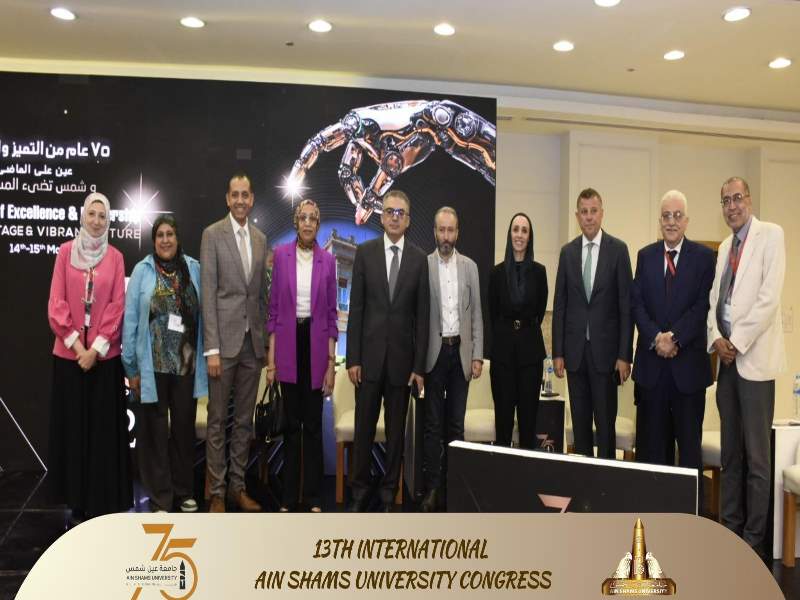The opening of the first scientific session on "The Future of University Hospitals" within the activities of the 13th Annual International Conference of Ain Shams University
Under the patronage of Prof. Ayman Ashour, Minister of Higher Education and Scientific Research, and Prof. Mohamed Diaa Zain El-Abedeen, President of Ain Shams University, and as part of the 13th Annual International Conference of Ain Shams University entitled "75 Years of Excellence and Leadership: An Eye on the Past and a Sun Lighting the Future", Prof. Ali Al-Anwar, Dean of the Faculty of Medicine and Chairman of the University Hospitals Board, inaugurated a specialized scientific medical session to discuss the future of university hospitals, within an advanced vision for integrating technology into the diagnostic medical sector, enhancing Ain Shams University’s status as a leading institution in medical innovation and digital transformation.
Prof. Mahmoud El-Metini, former President of Ain Shams University, expressed his pride in the rapid progress achieved by the university in the medical field, particularly in AI applications and robotic surgery. He emphasized that the new generation of doctors is confidently and competently leading this phase.
He noted that today’s achievements are the result of ongoing efforts and interdisciplinary collaboration, and that the advancements in organ transplantation and critical care are evidence of a promising future led by young talents.
 |
 |
 |
||
Prof. Ali Al-Anwar, Dean of the Faculty of Medicine and Chairman of the Board of University Hospitals at Ain Shams University, affirmed during his speech that the university has adopted a proactive vision towards digital transformation, enabling it to achieve significant leaps over the past three years, especially in the fields of radiology and intelligent systems. He pointed out that the university had bet on a technological future that was unclear to many, but was embraced with strong conviction.
He added that in just three years, Ain Shams University Hospitals have witnessed a real revolution, with the launch of numerous high-impact projects, making the university a preferred destination for global companies, particularly in radiology. These companies have recognized Ain Shams University Hospitals as the only educational institution in Egypt that has advanced in this field. He stressed that this success was not accidental, but rather the result of early planning and courageous decision-making. He concluded his speech by praising the spirit of cooperation within the university, affirming that teamwork and a clear vision have enabled Ain Shams University to establish its position as a pioneer in innovation and digital transformation in the healthcare sector.
In the same context, Prof. Hala Suweed, Vice Dean of the Faculty of Medicine for Community Service and Environmental Development, emphasized that Egyptian universities, especially Ain Shams, have a central role in shaping an integrated healthcare model that serves society and is based on innovation.
She clarified that improving healthcare services is not limited to equipment and technology but is founded on a comprehensive developmental vision in which education, scientific research, and sustainable development standards are integrated. She noted that the Community Service and Environmental Development Sector plays a vital role in connecting university hospitals with the needs of citizens, especially in underprivileged areas.
Emphasizing the importance of integration among faculties and various sectors within the university, as well as expanding partnerships with civil society organizations and the private sector, the session aimed to realize an advanced vision for university hospitals as a model for healthcare services and leaders in research, education, and community service.
The session was chaired by Prof. Aya Yassin, Director of the Center of Excellence for AI in the Medical Sector, Prof. Tamer Amara, Executive Director of the Virtual Hospital, Prof. Mohamed Ibrahim, Head of the Department of Mechatronics and Robotics at the Faculty of Engineering, Ain Shams University, and Prof. Mohamed Ismail, Professor of Anesthesiology
Prof. Somaya Saad El-Din, Professor of Pathology and Director of Laboratories at Demerdash Hospital, delivered a specialized presentation on the digital transformation of pathology at Ain Shams University Hospitals and the use of artificial intelligence.
She stressed that the effectiveness of AI systems heavily depends on the quality of training data, warning that weak data may result in biased or inaccurate outcomes. This highlights the urgent need for precise data management and quality enhancement.
In her talk, she presented a practical application and noted that the use of AI in pathology not only accelerates diagnostics but also increases accuracy and reduces human error, thus improving early treatment and patient outcomes.
Prof. Mohamed Abdel Razek, Professor of General Surgery and Deputy Director of Ain Shams Specialized Hospital, participated in the session with a presentation on the role of technology in developing modern surgical practices. He explained that robotic surgery at Ain Shams Specialized Hospital is a model of human-technology partnership.
He also presented a brief historical overview of the evolution of surgical tools and the integration of devices with surgical expertise. He highlighted the hospital’s experience in introducing robotic surgery, noting that it represents an advanced model of integrating technology with skilled human performance. He emphasized that despite the robot's high precision and ability to perform highly sensitive movements in hard-to-reach areas, it cannot replace the human surgeon.
He concluded by affirming that Ain Shams Specialized Hospital is working on developing its robotic surgery unit through academic and training partnerships that place Egypt at the forefront of countries adopting this advanced surgical field.
Engineer Mohamed Ibrahim Awad, Professor of Mechatronics and Robotics and Head of the Mechatronics Engineering Department at Ain Shams University, presented from the Human-Centered Mechatronics (HCM) Lab at Ain Shams. He discussed the future vision for integrating technology into healthcare.
He explained that the lab was established as a research and educational platform aimed at merging engineering and medicine within a multidisciplinary environment that enables collaboration between researchers and academics from the Faculties of Engineering and Medicine to develop innovative solutions for human health and quality of life.
He concluded by stressing that the lab aims to enhance interdisciplinary cooperation and build a new generation of researchers capable of designing real-world solutions grounded in a deep understanding of human needs, noting that this initiative is a model for linking scientific research with clinical and practical realities.
Prof. Sameh Salem, Director of Emergency and Critical Care at Ain Shams University Hospitals, reviewed key developments in the critical care sector over the past five years, focusing on digital transformation and the implementation of remote intensive care systems.
He explained that the concept of remote ICU care involves integrating advanced audiovisual communication networks and computer systems to connect critical care physicians and nurses with ICUs in other locations, especially in remote hospitals or those lacking specialized staff.
He also addressed the digital transformation efforts at the university hospitals, noting that evidence shows a significant improvement in the level of integration, coordination, and technical oversight of critical care services as part of a comprehensive digitization project that includes pharmacies, radiology, lab testing, and—most critically—the management of intensive care units.
In conclusion, the session produced the following recommendations:
• The necessity of enhancing cooperation among pathology, radiology, genomics departments, and clinical teams to develop unified AI-based research plans and implement precision medicine strategies.
• Strengthening coordination with ICU and emergency departments to support and streamline patient care.
• Expanding the application of robotic surgeries and working to make them more accessible to improve medical practice.
• Promoting collaboration across all medical departments, including intensive care and emergency units.
• Establishing a unified command center covering all ICUs at Ain Shams University to achieve higher efficiency and improved patient safety.


.svg)

